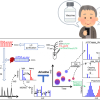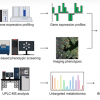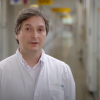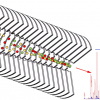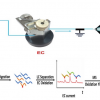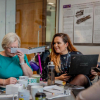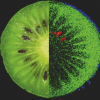Verdel Instruments Ltd, a spin-out company of the University of Warwick, UK, has developed new two-dimensional mass spectrometry (2DMS) technology and has raised seed investment of over £230,000 from Longwall Ventures and Innovate UK. The company are developing the first benchtop instrument with 2DMS capability. It quickly and efficiently delivers high quality structural analysis and sequencing of every component in a complex mixture at the same time.
Verdel’s 2DMS technology employs electric pulses to manipulate ions in a linear ion trap before fragmentation to enable parallel acquisition of mass spectra, which operates in combination with UV laser-based fragmentation and a fast mass analyser such as time-of-flight. This data independent analysis technique is claimed to offer better specificity, sensitivity and speed in sample analysis than current techniques in routine use.
With Verdel’s 2DMS technology, only a single 20-minute analysis is required, enabling the analysis of multiple complex samples in one go, with all the data produced in parallel. It will be particularly advantageous for sample types which are water insoluble and pressure sensitive.
Professor Pete O’Connor, Director of Verdel Instruments Ltd and Professor of Analytical Chemistry at the University of Warwick commented: “Two-dimensional mass spectrometry is an incredible tool that allows researchers to get structural information from mixtures of components. We have been working on 2DMS for about eight years using an expensive, high-resolution mass spectrometer and have now solved some key issues to enable its broader uptake as a benchtop instrument.”
“We have done analysis of small pharmaceutical and agrichemical molecules, sequenced multiple complex protein or peptides, complex polymer distributions, monoclonal antibodies, proteomics samples and whole proteins, and are currently working to expand the capabilities into environmental testing, petroleum analysis, food-safety and clinical analysis.”
“Verdel is developing 2DMS on an inexpensive linear ion trap coupled with a very fast time-of-flight mass spectrometer, greatly expanding the reach of the technique into new markets. We are now looking to work with pharmaceutical companies to analyse samples and test the technology.”




